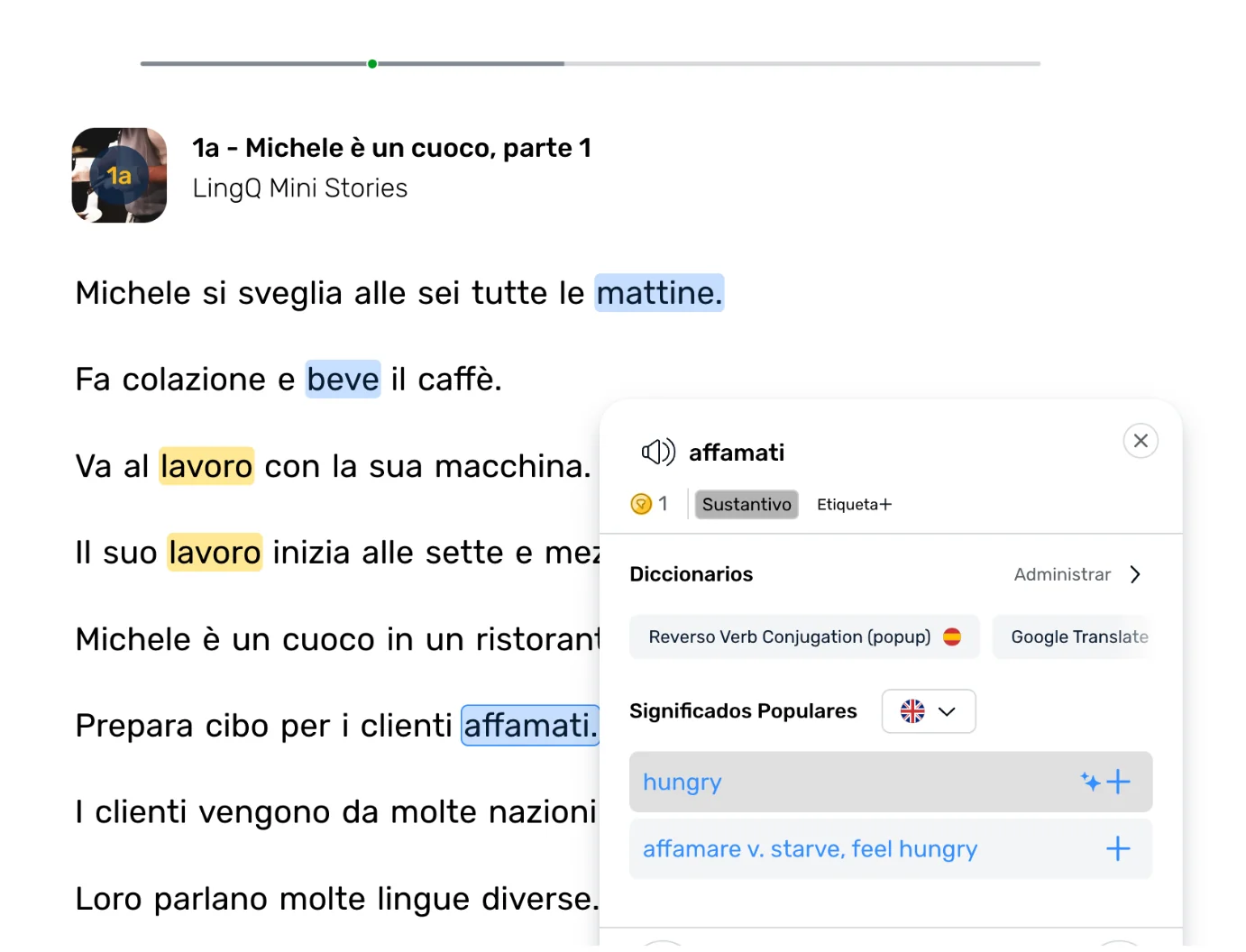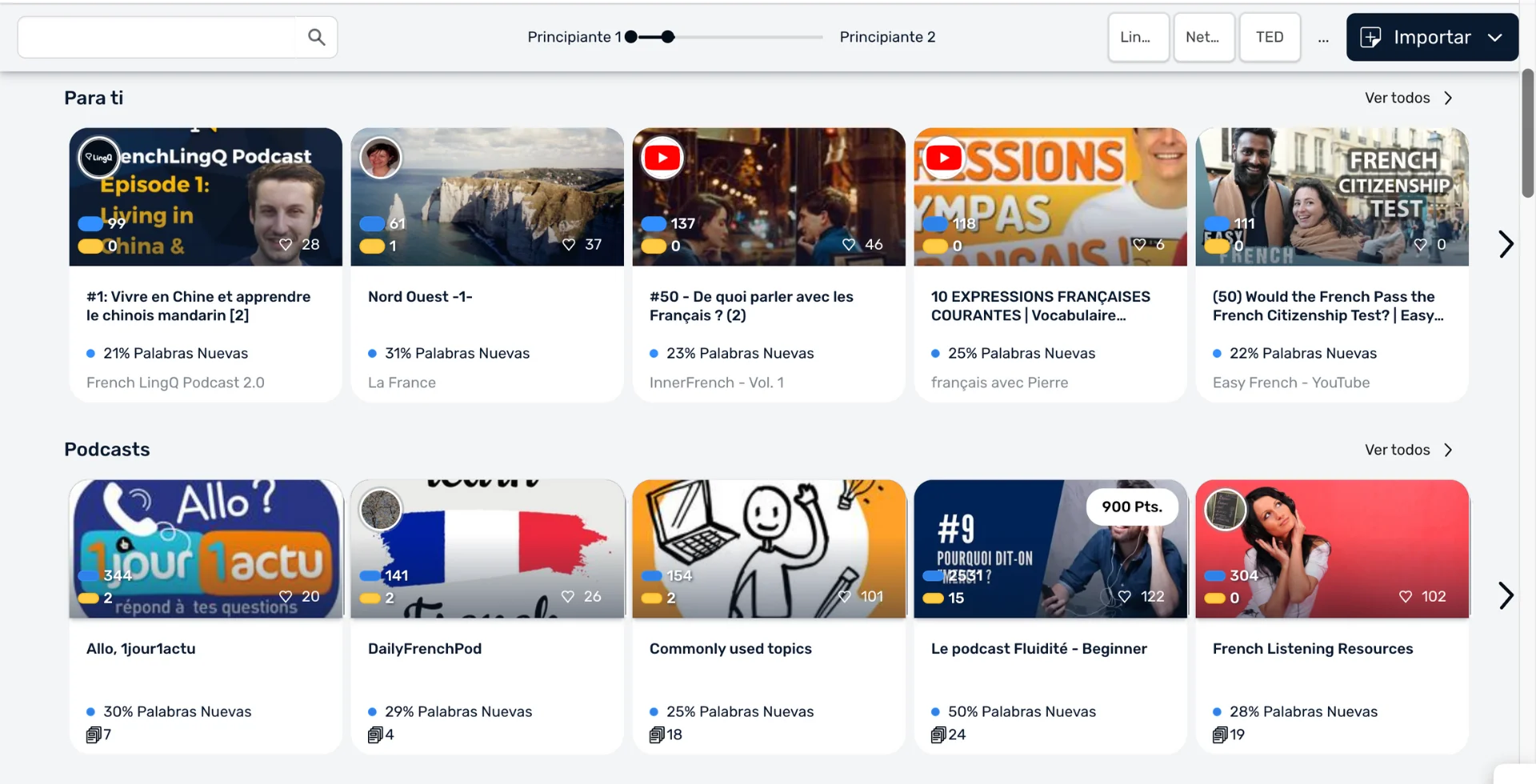You’ve made the decision to embark on the journey of learning a new language. While this is an exciting endeavor, it can also feel overwhelming at the beginning. How do you approach it? What tools should you use? In this post, we will guide you on the right mindset and strategies to start learning your target language effectively.
The Significance of a Strong Start
Understanding why a solid start is crucial in language learning brings two proverbs to mind.
“Well Begun Is Half Done”
This quote by Aristotle emphasizes the importance of starting a task effectively. It sets the foundation for success by shaping your mindset, pace, and consistency.
“A Journey of a Thousand Miles Begins with a Single Step”
These words from Laozi remind us that taking the first step is crucial, even in a long journey. Language learning is a marathon, and starting well means seizing and maintaining your momentum.
How to Begin Learning a Language the Right Way
Choose the Appropriate Content
Selecting the right content is essential when starting to learn a language. Many learners believe that starting with basic vocabulary like colors, family members, or phrases for the train station is the best approach. However, this may not be the most engaging or practical content for developing a feel for the language.
Focus on materials that contain high-frequency vocabulary and repetition. Resources such as LingQ Mini Stories are ideal for beginners as they introduce core vocabulary and grammar naturally and repeatedly. Instead of memorizing vocabulary lists out of context, you will read texts rich in high-frequency vocabulary and common sentence structures.
Avoid Overloading on Grammar (Especially at the Beginning)
Avoid diving into conjugation tables or declension rules right from the start. While it can be helpful to have a basic understanding of grammar, it is not necessary to memorize rules right away. Language learning is about building an intuition for the language through exposure, not about perfecting grammar from the beginning.
As you start recognizing patterns in the language, feel free to explore and seek explanations. However, the goal is to learn the language through consistent exposure and observation of its elements.
Avoid Artificial Conversations
Focus on content that interests you. Many phrases taught in traditional language courses may not be relevant in real-life conversations. For example, phrases like “How old are you?” may not be used frequently in everyday interactions. These structures can be learned later as you progress and encounter situations where they are needed. Instead, engage with meaningful content—listen to and read materials that capture your interest.
Essential Principles for Starting a Language
Immersion
Consistent exposure to the language is invaluable. Begin with beginner-friendly materials and immerse yourself in the language as much as possible. Start listening, reading, and looking up words that catch your attention. If you are actively engaging with the language and enjoying the process, you are on the right path.
Repetition
Encountering high-frequency vocabulary and structures multiple times is essential for effective learning. Repetition is key to internalizing the language and developing an intuitive sense of it. Beginner textbooks often lack the necessary repetition to solidify vocabulary. Traditional lessons tend to introduce new words without revisiting previously learned ones.
High-quality beginner content, such as LingQ Mini Stories, offers the consistent repetition needed for true language acquisition. Seek out understandable, engaging input that you can read and revisit to absorb the language effectively.
Build Momentum
Once you take that initial step, everything else will start to fall into place. Just as physical exercise becomes enjoyable once you get started, language learning becomes engaging as you immerse yourself. Through consistent exposure, you will develop a feel for the language. As you read and listen, grammar explanations and other details will become easier to grasp.
In summary…
-
- Don’t stress about mastering grammar right at the beginning of your language learning journey.
-
- Focus on consistent exposure to the language through reading and listening.
-
- Use content that emphasizes repetition and high-frequency vocabulary.
-
- Avoid dull or irrelevant material—engage with content that feels authentic.
-
- Starting well doesn’t mean starting perfectly. Establish habits that keep you motivated.
Often, the first step is the most challenging but also the most crucial. With consistent effort, the right resources, and ample exposure, your language learning journey will be off to a great start and eventually lead to success. Thank you for reading, and happy learning!







